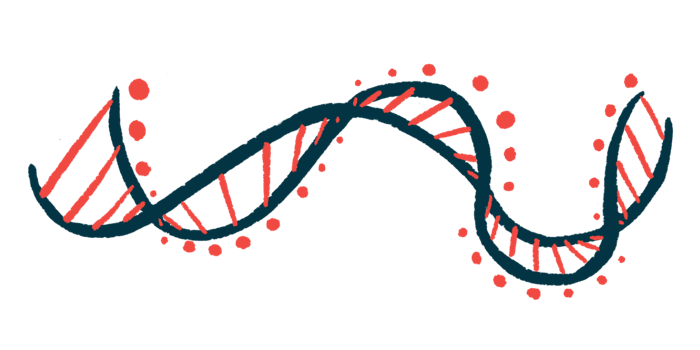Overactive immune genes may fuel sarcoidosis inflammation: Study
Researchers say they could serve as potential treatment targets
Written by |

Sarcoidosis appears to involve activation of several immune pathways, particularly those guiding responses against some common viruses.
These are the findings of a study that looked for immune signatures of the disease by analyzing differences in gene activity between people with sarcoidosis and healthy controls.
“These findings support the known involvement of specific immune responses in the [development] of sarcoidosis,” researchers wrote. “The identified differentially [activated] genes may serve as potential therapeutic targets, warranting further investigation.”
The study, “Transcriptomic meta-analysis of sarcoidosis peripheral blood using STARGEO identifies immune signatures and potential biomarkers,” was published in the journal Human Gene by a team of researchers in the U.S.
‘Upregulated genes predominantly play a role in the inflammatory response’
Sarcoidosis is marked by the formation of small clumps of inflammatory cells called granulomas. It may affect different organs and cause permanent tissue damage. As a result, patients may experience a range of symptoms and complications.
“Although the [cause] of the disease remains unknown, certain risk factors have been identified, such as inhalational exposure to metals and silica and exposure to microbes such as Mycobacterium, among others,” the researchers wrote.
Previous studies have also shown that genetics may play a role in sarcoidosis, prompting these researchers to search for genes that are more active (upregulated) or less active (downregulated) in sarcoidosis patients relative to healthy controls.
They started by comparing gene activity between blood samples of 218 people diagnosed with sarcoidosis and blood samples from 271 individuals without the disease, who were used as controls. The data came from nine datasets available in the Gene Expression Omnibus public database.
A total of 639 genes showed significantly different activity levels between patients and controls.
“Upregulated genes predominantly play a role in the inflammatory response through various mechanisms,” the team wrote.
Researchers ID top differentially regulated immune pathways in sarcoidosis
The top two upregulated genes, FCGR1CP and FCGR1B, are members of a family of genes coding for proteins called IgG Fc receptors, which boost immune responses by recognizing antibodies attached to infected cells or invading microbes, such as bacteria, viruses, and fungi.
Two other top upregulated genes, DEFA1B and DEFA3, are known to stimulate the activity of macrophages — immune cells that engulf and destroy microbes or dead cells — and neutrophils, which are fast-acting immune cells that release toxic substances to destroy microbes.
The GBP1 gene, known to play a role in inflammation, was also found to be upregulated in sarcoidosis. Another upregulated gene, GBP5, which was previously reported to be upregulated in sarcoidosis, is involved in interferon signaling, which informs the immune system of the presence of microbes. BATF2, which has been suggested as a biomarker of sarcoidosis, was also upregulated.
Next, the researchers looked for upstream regulators of those genes — that is, genes that act earlier in these immune pathways. The top upstream regulators predicted to be activated in sarcoidosis were IRF9, STAT2, IFNB1, IFNG, and IRF7, which are mainly involved in interferon signaling.
The findings described herein build upon prior knowledge of the [underlying mechanisms] of sarcoidosis and shed light on the complex interplay of genomics in sarcoidosis.
The data also allowed the researchers to identify the top differentially regulated immune pathways in sarcoidosis. These were mainly involved in recognizing potential threats and guiding responses against herpes simplex virus (HSV-1), the influenza A virus, and the virus causing COVID-19.
The biological processes most associated with the differentially activated genes in sarcoidosis included defense responses to viruses and certain types of bacteria, as well as the IL-27-mediated signaling pathway, which has the potential to promote both pro- and anti-inflammatory responses.
“The top differentially regulated genes and pathways in sarcoidosis versus control are predominately involved in the immune response to viral and bacterial pathogens,” the researchers wrote. “The findings described herein build upon prior knowledge of the [underlying mechanisms] of sarcoidosis and shed light on the complex interplay of genomics in sarcoidosis.”
The team noted that “it remains unclear whether autoimmune dysfunction or dysregulated response to infection is involved in sarcoidosis [development], and further research is required to further elucidate underlying mechanisms to improve treatment options and outcomes.”







